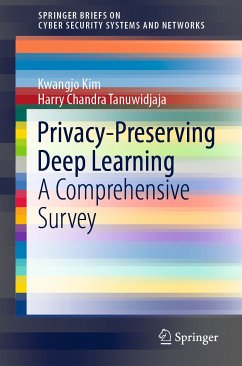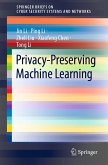This book discusses the state-of-the-art in privacy-preserving deep learning (PPDL), especially as a tool for machine learning as a service (MLaaS), which serves as an enabling technology by combining classical privacy-preserving and cryptographic protocols with deep learning. Google and Microsoft announced a major investment in PPDL in early 2019. This was followed by Google's infamous announcement of "Private Join and Compute," an open source PPDL tools based on secure multi-party computation (secure MPC) and homomorphic encryption (HE) in June of that year. One of the challenging issues concerning PPDL is selecting its practical applicability despite the gap between the theory and practice. In order to solve this problem, it has recently been proposed that in addition to classical privacy-preserving methods (HE, secure MPC, differential privacy, secure enclaves), new federated or split learning for PPDL should also be applied. This concept involves building a cloud framework that enables collaborative learning while keeping training data on client devices. This successfully preserves privacy and while allowing the framework to be implemented in the real world.
This book provides fundamental insights into privacy-preserving and deep learning, offering a comprehensive overview of the state-of-the-art in PPDL methods. It discusses practical issues, and leveraging federated or split-learning-based PPDL. Covering the fundamental theory of PPDL, the pros and cons of current PPDL methods, and addressing the gap between theory and practice in the most recent approaches, it is a valuable reference resource for a general audience, undergraduate and graduate students, as well as practitioners interested learning about PPDL from the scratch, and researchers wanting to explore PPDL for their applications.
Dieser Download kann aus rechtlichen Gründen nur mit Rechnungsadresse in A, B, BG, CY, CZ, D, DK, EW, E, FIN, F, GR, HR, H, IRL, I, LT, L, LR, M, NL, PL, P, R, S, SLO, SK ausgeliefert werden.









